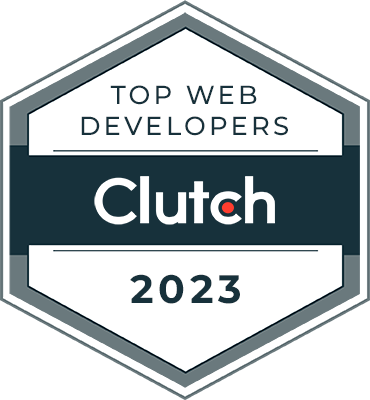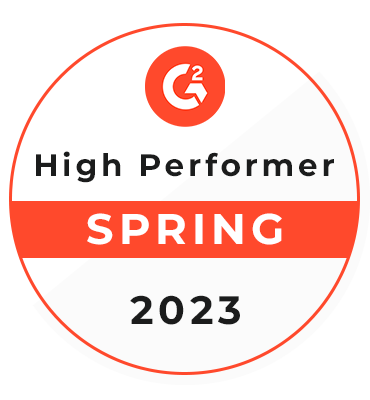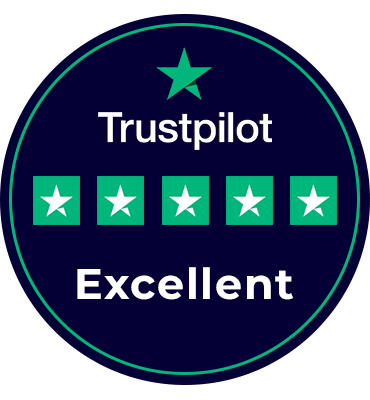Agile MVP Software Development in the UK: Accelerate Your Software Success
Shyam Singh
Last Updated on: 23 September 2025
In today’s fast-paced digital economy, launching software products quickly while minimizing risk has become crucial for startups, SMEs, and large enterprises alike. Agile MVP (Minimum Viable Product) software development has emerged as the go-to strategy for businesses in the UK looking to validate ideas, attract early users, and streamline product development. This approach emphasizes building a product with just enough features to satisfy early adopters, gather feedback, and iteratively improve the solution.
In this blog, we’ll explore everything you need to know about Agile MVP software development in the UK: its methodology, benefits, process, cost factors, and how UK businesses can leverage it to gain a competitive edge.
What is Agile MVP Software Development?
Agile MVP software development combines two powerful concepts: Agile methodology and Minimum Viable Product (MVP) strategy.
Agile Methodology
Agile is a flexible, iterative approach to software development. It prioritizes collaboration, rapid delivery, adaptability, and continuous feedback. Agile teams work in short cycles called sprints, allowing faster response to market changes.
Minimum Viable Product (MVP)
An MVP is a simplified version of a software product that includes only the core features necessary to address a target audience's problem. The goal is to launch quickly, validate assumptions, and gather actionable feedback.
When these approaches are combined, businesses can develop software in the UK efficiently, reducing costs, accelerating time-to-market, and improving user satisfaction.
Why UK Businesses Prefer Agile MVP Development
The UK tech ecosystem has been witnessing unprecedented growth. Startups and enterprises are increasingly adopting Agile MVP development due to several key reasons:
- Rapid Market Entry: Agile MVP development allows companies to launch their products faster and capture early market share.
- Cost Efficiency: By focusing only on essential features, businesses save money on development and avoid over-engineering.
- Customer-Centric Approach: Continuous user feedback ensures the product aligns with user expectations and improves retention.
- Risk Mitigation: MVPs help test hypotheses before investing heavily, reducing the risk of product failure.
- Scalability: Agile frameworks allow the product to evolve iteratively, adding features as user demand grows.
Key Principles of Agile MVP Development
- Iterative Development: Software is built in small, manageable increments. Each iteration delivers a working version that can be tested and refined.
- Collaboration: Developers, designers, stakeholders, and end-users collaborate closely throughout the development lifecycle.
- Prioritization: Focus on building features that provide the highest value to users. Avoid unnecessary complexity early on.
- Feedback-Driven: Continuous testing and user feedback guide product improvements.
- Adaptability: The product roadmap is flexible to incorporate market trends, user behavior, and business strategy changes.
The Agile MVP Development Process in the UK
A well-structured Agile MVP development process ensures timely delivery and high-quality software. Here’s how UK companies typically approach it:
1. Idea Validation & Research
Before starting development, businesses conduct market research, competitor analysis, and user interviews. This stage helps identify the problem, target audience, and core features of the MVP.
Tools & Techniques:
- Surveys & interviews
- SWOT analysis
- Market trend reports
2. Defining Core Features
The product team lists all potential features and prioritizes them based on business value, feasibility, and user impact. Only essential features make it to the MVP.
Example: For a UK-based food delivery app, core features might include user registration, restaurant listing, menu selection, and payment integration. Features like loyalty programs or AI-based recommendations can be added later.
3. Agile Sprint Planning
The development team breaks down the project into sprints, typically lasting 1–3 weeks. Each sprint delivers a usable component of the product.
Benefits:
- Faster development cycles
- Clear milestones
- Flexibility to change scope
4. MVP Development
Developers start coding the MVP using modern technologies, frameworks, and best practices. Agile practices such as daily stand-ups, continuous integration, and version control ensure smooth progress.
Popular Tech Stack in the UK:
- Frontend: ReactJS, Angular, Vue.js
- Backend: Node.js, Django, Ruby on Rails
- Mobile: Flutter, React Native
- Database: PostgreSQL, MongoDB
5. Testing & Quality Assurance
Testing is continuous in Agile. QA teams perform functional, performance, and usability testing to ensure a smooth user experience.
Testing Practices:
- Unit Testing
- Integration Testing
- User Acceptance Testing (UAT)
6. Launch & Feedback Collection
Once the MVP is ready, it is launched to a select audience in the UK. User feedback is gathered through analytics, surveys, and direct communication.
7. Iterative Improvement
Based on feedback, new features are prioritized, and existing functionalities are enhanced. Agile ensures the product evolves according to real user needs.
Benefits of Agile MVP Software Development
- Faster Time-to-Market: Launch early to capture opportunities and stay ahead of competitors.
- Cost Savings: Avoid unnecessary development costs by focusing on core features.
- Validated Learning: Test ideas in real-world conditions before full-scale development.
- Flexibility: Easily adapt to changing market conditions, regulations, and user demands.
- Improved User Engagement: Continuous feedback loops ensure the product meets user expectations.
- Better ROI: Investments are directed toward features that truly matter to the audience.
Challenges in Agile MVP Development and How to Overcome Them
- Scope Creep: Adding too many features can derail timelines and budgets.
Solution: Strict prioritization and regular sprint reviews. - Insufficient Feedback: Without genuine user feedback, the MVP may fail to meet expectations.
Solution: Engage target users early and continuously throughout the development process. - Technical Debt: Rushed development can lead to poorly written code.
Solution: Maintain code quality through regular code reviews and automated testing. - Team Collaboration: Agile relies heavily on effective communication and collaboration.
Solution: Use project management tools like Jira, Trello, or Asana, and ensure daily stand-ups are conducted.
Agile MVP Success Stories in the UK
- Revolut: Initially launched as a simple currency exchange app, Revolut iteratively added features like international transfers, budgeting, and crypto trading.
- Monzo: Began as a basic banking app and continuously improved features based on user feedback, now a leading UK digital bank.
- Deliveroo: Started with a simple restaurant delivery MVP and scaled to offer advanced logistics, tracking, and subscription services.
Cost of Agile MVP Software Development in the UK
The cost of developing an Agile MVP in the UK varies based on several factors:
- Project Complexity: More complex MVPs with integrations, AI, or advanced features cost more.
- Team Size & Expertise: Hiring experienced developers, designers, and QA specialists affects the budget.
- Technology Stack: The choice of tools, frameworks, and platforms impacts costs.
- Timeline: Shorter timelines may increase costs due to resource intensification.
Estimated Cost Range:
- Simple MVP: £15,000 – £30,000
- Medium Complexity MVP: £30,000 – £70,000
- Complex MVP: £70,000+
Choosing the Right Agile MVP Development Partner in the UK
- Proven Experience: Check for successful MVP launches in your industry.
- Agile Expertise: Ensure the team follows Agile principles rigorously.
- Technical Proficiency: Look for proficiency in modern frameworks and tech stacks.
- Client Collaboration: Transparent communication and iterative feedback are essential.
- Post-Launch Support: The partner should support ongoing updates and scaling.
Future of Agile MVP Development in the UK
- AI-Driven MVPs: Incorporating AI to enhance personalization and automation.
- Cloud-Native MVPs: Leveraging cloud infrastructure for scalability and cost efficiency.
- No-Code/Low-Code Platforms: Faster MVP creation for non-technical founders.
- Data-Driven Development: Analytics and user behavior guiding feature prioritization.
Conclusion
Agile MVP software development is a game-changer for UK businesses aiming to innovate, reduce risks, and deliver products that truly resonate with users. By combining Agile methodology with a minimum viable product strategy, companies can validate ideas, gather feedback, and scale efficiently.
Whether you are a startup testing a bold new idea or an enterprise seeking to digitize services, adopting Agile MVP development can accelerate your software journey, save costs, and maximize ROI.
For UK businesses looking to leverage Agile MVP software development, partnering with an experienced development company ensures your ideas transform into successful, market-ready products.
FAQs on Agile MVP Development in the UK
1. What is an MVP in software development?
An MVP, or Minimum Viable Product, is a simplified version of a software product that includes only the core features necessary to solve a user problem and validate business ideas before full-scale development.
2. What is Agile MVP development?
Agile MVP development combines the iterative Agile methodology with the MVP strategy. It focuses on building a basic product quickly, gathering feedback, and continuously improving it based on real user insights.
3. Why should UK businesses choose Agile MVP development?
UK businesses adopt Agile MVP development to reduce costs, launch products faster, test ideas with real users, mitigate risks, and ensure the product evolves according to customer needs.
4. How long does it take to develop an MVP?
The timeline for an MVP depends on complexity but usually ranges from 8–16 weeks. Simple MVPs take less time, while complex solutions with integrations or advanced features may take longer.
5. How much does it cost to build an MVP in the UK?
Costs vary depending on complexity, team size, and technology stack:
- Simple MVP: £15,000 – £30,000
- Medium Complexity MVP: £30,000 – £70,000
- Complex MVP: £70,000+
6. Can Agile MVP development work for large enterprises?
Yes. Agile MVP development is suitable for startups as well as large enterprises. It helps test new product ideas efficiently without committing significant resources upfront.
7. What technologies are commonly used in Agile MVP development?
Popular tech stacks include:
- Frontend: ReactJS, Angular, Vue.js
- Backend: Node.js, Django, Ruby on Rails
- Mobile: React Native, Flutter
- Database: PostgreSQL, MongoDB
8. How do companies gather feedback for an MVP?
Feedback is collected through beta testing, analytics tools, surveys, user interviews, and direct communication with early adopters. This helps refine features and improve user experience.
9. What are the common challenges in Agile MVP development?
Common challenges include scope creep, insufficient user feedback, technical debt, and poor team collaboration. These can be mitigated with strict prioritization, regular sprint reviews, automated testing, and effective communication tools.
10. What is the difference between an MVP and a full-featured product?
An MVP includes only the essential features to test ideas and solve core problems. A full-featured product has a complete set of functionalities and is fully optimized for scalability and user experience.
11. How do Agile sprints work in MVP development?
Agile sprints are short development cycles, usually 1–3 weeks long, where a team builds a functional part of the MVP. After each sprint, the product is tested, reviewed, and refined based on feedback before moving to the next sprint.
12. How does Agile MVP development reduce risks?
By launching a product with minimal features and iterating based on real user feedback, businesses can validate ideas without heavy upfront investment, thus reducing the risk of product failure.
13. Can MVPs be scaled into full products?
Yes. MVPs are designed to be scalable. Once validated, features can be enhanced, new functionalities added, and the product transformed into a fully-fledged solution.
14. What industries benefit from Agile MVP development?
Industries such as fintech, healthtech, eCommerce, logistics, and SaaS startups greatly benefit from Agile MVP development because it allows quick validation of ideas and faster market entry.
15. What is the role of user feedback in Agile MVP development?
User feedback drives iterative improvements. It ensures that the product meets actual user needs, enhances engagement, and prioritizes features that add real value.
16. How do UK startups validate their ideas using MVPs?
UK startups often launch MVPs to a small audience, analyze usage data, collect feedback, and refine the product. This approach helps them test hypotheses, attract investors, and reduce development costs.
17. Why is Agile methodology preferred for MVP development?
Agile allows flexibility, iterative development, and continuous feedback integration. This makes it ideal for MVPs, as teams can quickly adapt to changes and improve the product based on real-world usage.

 Verified
Expert in Software & Web App Engineering
Verified
Expert in Software & Web App Engineering
I am Shyam Singh, Founder of Fulminous Software Private Limited, headquartered in London, UK. We are a leading software design and development company with a global presence in the USA, Australia, the UK, and Europe. At Fulminous, we specialize in creating custom web applications, e-commerce platforms, and ERP systems tailored to diverse industries. My mission is to empower businesses by delivering innovative solutions and sharing insights that help them grow in the digital era.
Partner with Top-Notch Web Application Development Company!
Discuss your Custom Application Requirements on info@fulminoussoftware.com or call us on +1-903 488 7170.
15 Days Risk-Free Trial

